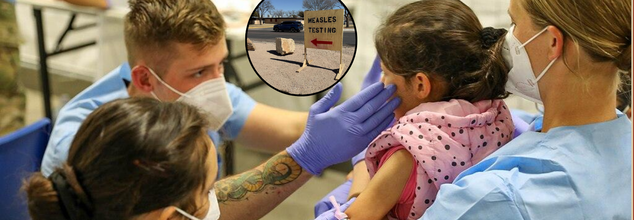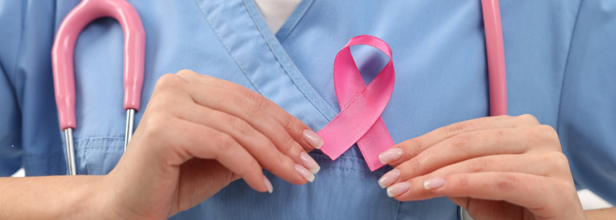
Second Child Dies In Texas Measles Surge, Nearly 500 Infected And Counting
The United States is witnessing its most significant measles outbreak in over a decade, with Texas at the epicenter. The recent death of an 8-year-old child in Lubbock marks the second pediatric fatality from the disease in the state this year. The child, who was unvaccinated, died of "measles pulmonary failure" — a severe complication of the viral illness — at University Medical Center Children’s Hospital.
This latest fatality, following the February death of another school-aged unvaccinated child, underscores the growing public health emergency in Texas and beyond. As of early April, the Texas Department of State Health Services has confirmed 481 measles cases — a 14% increase over the previous week — with total U.S. cases exceeding 628 across 21 states and Washington D.C.
Both child victims were reportedly healthy before contracting measles, with no underlying conditions. Yet neither had received the MMR (measles, mumps, rubella) vaccine, which the Centers for Disease Control and Prevention (CDC) confirms is 97% effective in preventing measles after two doses.
According to the CDC, about 1 in 20 children with measles will develop pneumonia — the most common cause of death from measles in young children. Additionally, 1 to 3 of every 1,000 infected children may die from respiratory or neurological complications. Measles also induces "immune amnesia," weakening the immune system for months or even years.
"The disease has returned because a critical percentage of parents have chosen not to vaccinate their children, in large part due to misinformation," said Dr. Paul Offit, Director of the Vaccine Education Center at Children’s Hospital of Philadelphia.
The outbreak that began in Seminole, Texas, in January has spread into New Mexico, Oklahoma, Kansas, and even Mexico. New Mexico has reported 54 cases, Oklahoma 10 (eight confirmed and two probable), and Kansas 24, many likely linked to the Texas outbreak.
Most cases are in individuals under 18 years old, and the majority of them were unvaccinated. Public health officials fear that these figures may be an undercount, as many people with mild or unreported symptoms may not seek medical care or testing.
“This virus is spreading fast, and it’s hitting our youngest, most vulnerable populations the hardest,” said Katherine Wells, Public Health Director in Lubbock.
Hospitals in West Texas have been strained by the surge. University Medical Center Children’s Hospital and Covenant Children's Hospital have collectively treated dozens of children for measles-related complications — from respiratory failure to vitamin A toxicity in children given alternative treatments without medical oversight.
Dr. Lara Johnson, Chief Medical Officer at Covenant, reported treating multiple children for liver issues caused by excess vitamin A. “We understand the desperation parents may feel, but unregulated treatment is dangerous,” she warned.
U.S. Health and Human Services Secretary Robert F. Kennedy Jr. has faced growing scrutiny over what many in the medical community call a slow and inadequate response. Once a vocal anti-vaccine advocate, Kennedy has only recently acknowledged the importance of the MMR vaccine publicly.
Kennedy visited Gaines County, the outbreak’s epicenter, over the weekend to meet with grieving families and issued a statement urging vaccination. However, critics, including FDA’s former vaccine chief Dr. Peter Marks, say his past stance has contributed to vaccine hesitancy and misinformation.
“This is the epitome of an absolute needless death,” Marks said. “These kids should get vaccinated — that’s how you prevent people from dying of measles.”
The CDC has deployed teams to West Texas and continues to urge parents to immunize their children. Dr. Manisha Patel, the agency’s incident manager for the outbreak, emphasized that during outbreaks, even babies as young as six months should receive their first dose of the MMR vaccine.
“This isn’t the time to wait. Parents need to act now,” Patel said at a press conference. She urged families not to delay seeking medical attention for any child showing measles symptoms such as high fever, rash, or persistent cough.
Still, the CDC’s own messaging has been mixed. A spokesperson recently referred to vaccination as a "personal decision," diverging from long-standing public health guidance — a shift that has puzzled and concerned many healthcare professionals.
With more than double the measles cases reported this year compared to all of 2024, the U.S. is now on a dangerous trajectory. The outbreak is expected to continue for several months, possibly into 2026, unless drastic steps are taken to increase immunization rates.
Senator Bill Cassidy of Louisiana, a Republican and physician, has called for Kennedy to testify before the Senate Health Committee. “Everyone should be vaccinated! There is no treatment for measles. No benefit to getting measles,” Cassidy wrote on X.
Experts agree that restoring public trust in vaccines, bolstering access to immunization clinics, and combating misinformation are essential next steps. If not, more children — like the ones in Texas — will pay the ultimate price.

RFK Jr. Says New HHS Research Could Solve ‘Autism Epidemic’ By September- Could This Change Treatment?
Stirring another debate across the global medical and scientific communities, U.S. Health and Human Services Secretary Robert F. Kennedy Jr. has announced an ambitious plan to pinpoint the root cause of what he calls the nation’s “autism epidemic” by September. Framing it as a top priority of the Trump administration’s “Make America Healthy Again” initiative, Kennedy says a massive international research effort is now underway, involving “hundreds of scientists from around the world.”
But could this initiative truly revolutionize autism treatment and prevention—or is it based on scientifically shaky ground?
Speaking at a cabinet meeting alongside President Donald Trump, Kennedy claimed that the HHS-led research campaign would “determine what has caused the autism epidemic” and ultimately “eliminate those exposures.”
According to the CDC, autism spectrum disorder (ASD) now affects about 1 in 36 children in the U.S.—a sharp increase from 1 in 150 in the year 2000. Kennedy suggested the current figure may already be closer to 1 in 31.
President Trump, echoing Kennedy’s concerns, remarked, “There’s got to be something artificial,” suggesting the answer may lie in a product we consume or an injection we receive. The implication is clear: Kennedy's administration may be eyeing food, environmental factors—or even vaccines—as potential contributors.
This isn’t the first time Kennedy has drawn attention for his views on vaccines. In a now-retracted 2005 article, he implied a link between childhood vaccines and autism—claims that have been debunked repeatedly by leading health organizations, including the CDC and WHO.
While Kennedy insists he is “pro-safety” rather than anti-vaccine, he has declined to definitively rule out a vaccine-autism link, instead insisting that “good science” must lead the way. During his Senate confirmation hearings, he refused to unequivocally declare that vaccines like those for measles or hepatitis B do not cause autism—unless “the data was there.”
That hesitation continues to fuel concerns within the scientific community, especially as Kennedy now investigates the CDC’s childhood vaccine schedule and seeks access to sensitive vaccine safety data from federal systems like VAERS (Vaccine Adverse Event Reporting System).
The prevailing medical consensus remains firm: vaccines do not cause autism.
Multiple large-scale studies have failed to find a causal connection between autism and vaccinations, including those that contain thimerosal, a mercury-based preservative once cited by skeptics. The National Institute of Environmental Health Sciences (NIEHS), part of the NIH, maintains that no credible scientific link exists.
Instead, researchers point to a more complex interplay of genetic and environmental factors in autism’s etiology. These may include advanced parental age, prenatal exposure to air pollution or pesticides, and genetic mutations that influence brain development. Moreover, improved diagnostic criteria, earlier screening, and heightened awareness have contributed to increased detection.
Kennedy’s timeline—promising conclusive results by September—has drawn sharp criticism from autism advocacy organizations, scientists, and disability rights groups.
The Autistic Self Advocacy Network (ASAN) dismissed the plan as fundamentally flawed. “Real science does not move that quickly,” the group said in a statement. “Kennedy’s conviction that he has already found the answer demonstrates his disregard for the scientific method.”
Zoe Gross, director of advocacy at ASAN, added that Kennedy’s emphasis on “eliminating exposures” reveals a troubling bias toward predetermined outcomes. “It really is giving the game away,” she said.
Meanwhile, the Autism Society of America warned against misleading claims. “We need more rigorous, science-based research—not speculation, less transparency, or oversimplified timelines,” they said, citing concerns about who is leading the effort and what methodology is being applied.
The internal shakeup at the FDA offers further insight into the growing tensions between Kennedy’s office and established regulatory authorities. Dr. Peter Marks, former director of the FDA’s Center for Biologics Evaluation and Research, resigned after reportedly resisting pressure from Kennedy’s team to grant full access to VAERS. Marks feared that data could be manipulated, according to interviews with the Associated Press.
Despite these tensions, the National Institutes of Health (NIH) confirmed that it is cooperating with HHS to investigate autism's causes, citing a “national imperative” to uncover the truth behind rising ASD rates. However, the NIH also emphasized that it remains committed to using only “gold-standard, evidence-based science.”
Could This Affect Autism Treatment?
In theory, identifying environmental or lifestyle triggers for autism could open new frontiers for early intervention and prevention. If Kennedy’s research initiative reveals any previously unknown risks—validated by independent peer-reviewed studies—it could potentially shape future policies, healthcare guidance, and even parental decision-making during pregnancy and early childhood.
However, that optimistic scenario hinges on the research being conducted with full transparency, rigorous peer review, and alignment with established scientific standards—none of which, critics argue, are currently in place.
RFK Jr.’s bold promise to crack the code of autism by September is attention-grabbing, but it comes with a long shadow of controversy. With rising autism rates, families are desperate for answers. But as science has shown time and again, real answers take time—and cutting corners in the pursuit of truth often leads to misinformation, misplaced blame, and deeper public mistrust.

Credits: Canva
Know All About The Recently Approved Landmark Breast Cancer Drug In UK
Breast cancer is one of the most common cancers in the world, affecting millions of women every year. It begins when cells in the breast grow uncontrollably, often forming a lump or mass. There are several types of breast cancer, classified based on the presence or absence of hormone receptors or certain proteins that influence cell growth.
One of the most common forms is HR-positive, HER2-negative breast cancer. “HR-positive” means the cancer cells grow in response to hormones like estrogen or progesterone, while “HER2-negative” indicates the cancer does not produce excess amounts of the HER2 protein. This subtype accounts for a significant percentage of breast cancer cases and can be difficult to treat, especially in advanced stages when it spreads beyond the breast to other parts of the body.
A Landmark Moment: Capivasertib Approved for NHS Use
In a major step forward, a new drug named capivasertib has been approved for use in the UK’s National Health Service (NHS). Developed by pharmaceutical company AstraZeneca, the drug is also marketed as Truqap. This oral medication offers fresh hope to patients battling incurable forms of breast cancer, particularly those with specific genetic mutations.
The approval by the National Institute for Health and Care Excellence (NICE) has been hailed as a “landmark moment” by researchers. According to NICE, more than 1,000 women each year with HR-positive, HER2-negative breast cancer in advanced stages could benefit from this new treatment.
How Does the Drug Work?
Capivasertib is taken as a twice-daily pill, in combination with the hormone therapy fulvestrant. The drug works by blocking an abnormal protein—a part of the cancer cell’s signaling system—that tells the cells to multiply. By disrupting this signal, capivasertib slows or halts the progression of the disease.
In a clinical trial, the combination of capivasertib and fulvestrant was shown to delay cancer progression by approximately 4.2 months compared to patients who received a placebo and fulvestrant. This delay in disease progression could mean more time before needing chemotherapy and its often difficult side effects.
The Role of Genetic Mutations
About half of the patients with this form of breast cancer have mutations in certain genes, which make them more likely to respond to capivasertib. These mutations can be detected through genetic testing, which helps doctors decide the most effective course of treatment for individual patients.
How to Get Checked?
Early diagnosis remains key in managing breast cancer. Women are advised to regularly perform self-exams, attend routine screenings such as mammograms, and report any unusual symptoms to a doctor. For those diagnosed with HR-positive, HER2-negative cancer, genetic testing may be recommended to check for mutations that would qualify them for treatment with capivasertib.
A Decade-Long Research Journey
The approval of capivasertib is the result of decades of research by scientists at the Institute of Cancer Research (ICR) in London. Kristian Helin, CEO of ICR, called the development a “triumph,” noting the drug’s potential to improve treatment outcomes for many patients.
As of 2020, over 40,000 people were diagnosed with breast cancer in the UK, with nearly 15% already at advanced stages. For them, this drug could represent both hope and more time.

Credits: Canva and Gilbert Carrasquillo
Against Experts' Concerns, HHS Releases A New Autism Study
The US Department of Health and Human Services (HHS) is now preparing a large-scale research initiative which will look at understanding the causes of autism. This announcement came from Secretary, Robert F Kennedy Jr. on Thursday after a Cabinet meeting with President Donald Trump.
What Will This New Research Do?
According to Kennedy, the HHS project will be a “massive testing and research effort” involving hundreds of scientists, with the goal of completing the work by September. The effort, however, has sparked immediate concern among scientists, autism advocacy groups, and public health experts, particularly because of Kennedy’s long-standing belief in a debunked theory linking vaccines to autism.
“There’s got to be something artificial out there that’s doing this,” President Trump told Kennedy during the meeting. “If you can come up with that answer, where you stop taking something, eating something, or maybe it’s a shot. But something’s causing it.”
RFK Controversy On Autism And Vaccine
Kennedy's earlier remarks and Trump's comments have already been taken with a pinch of salt, especially when they tried to revive the widely discredited claim that childhood vaccines could in fact cause autism. This theory originated in a 1998 study published in The Lancet, which falsely linked the MMR (measles, mumps, and rubella) vaccine to autism. The study was later retracted due to unethical practices and flawed data. Its lead author lost his medical license.
Despite overwhelming evidence disproving the vaccine-autism link, Kennedy has continued to promote it. During the Cabinet meeting, he restated his position:
“I saw my children get sick after getting vaccinated, and I’ve heard thousands of parents say the same. It’s time we take a serious look. This study is going to find out if something we’re doing—maybe the vaccines—is behind the autism epidemic.”
His statement was met with mixed reactions, especially from medical experts and autism advocates.
What Does Science Really Say?
Decades of research have failed to show any credible link between vaccines and autism. Major public health institutions—including the Centers for Disease Control and Prevention (CDC), the World Health Organization (WHO), the American Academy of Pediatrics, and advocacy groups like Autism Speaks—have all concluded that vaccines do not cause autism.
Autism, a developmental condition affecting communication, behavior, and learning, has more scientifically established risk factors. These include:
- Genetic influences, which are the most significant contributors
- Environmental exposures such as air pollution and pesticides
- Low birth weight or premature birth
- Parental age, with older parents being more likely to have children with autism
The National Institutes of Health (NIH) already invests over $300 million annually in autism research, focusing on early detection, interventions, and understanding underlying causes. It remains unclear how Kennedy’s study will differ or whether it will duplicate ongoing efforts.
What Do The Experts Say?
The Autism Society of America and other groups have raised concerns over the new initiative. “There is a deep concern that we are going backward and evaluating debunked theories,” said Kristyn Roth, a spokesperson for the Autism Society. She also noted that their organization had not been consulted in any part of the study’s planning.
Another source of controversy is Kennedy’s choice to appoint Dr. David Geier, an orthopedic surgeon who has long claimed a link between vaccines and autism, to lead the study. In 2011, Maryland authorities found Geier was practicing medicine without a license.
© 2024 Bennett, Coleman & Company Limited



